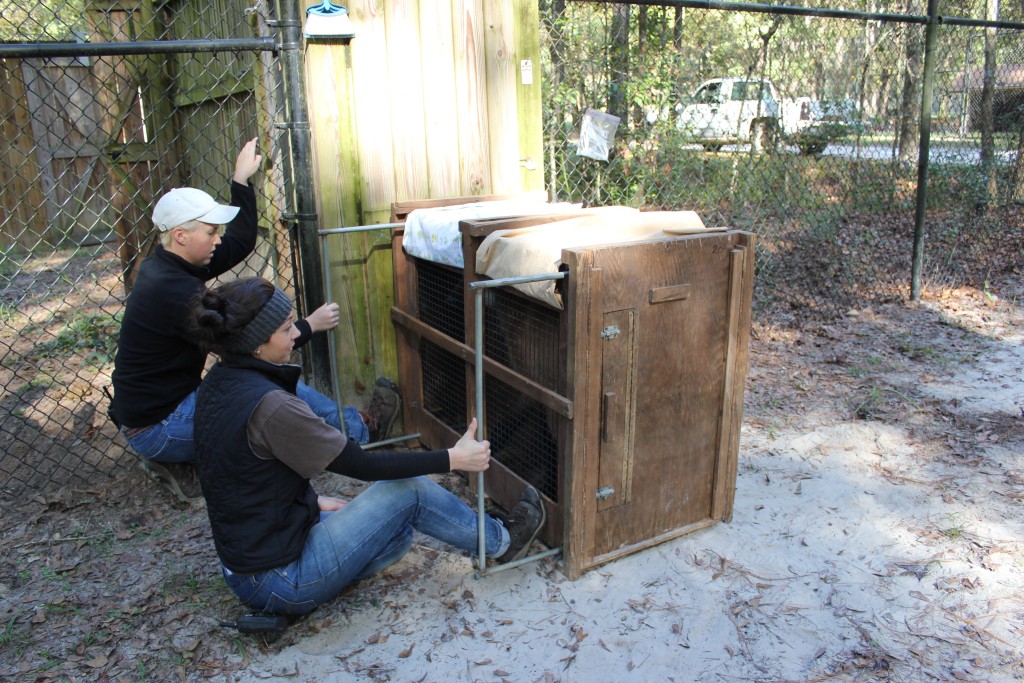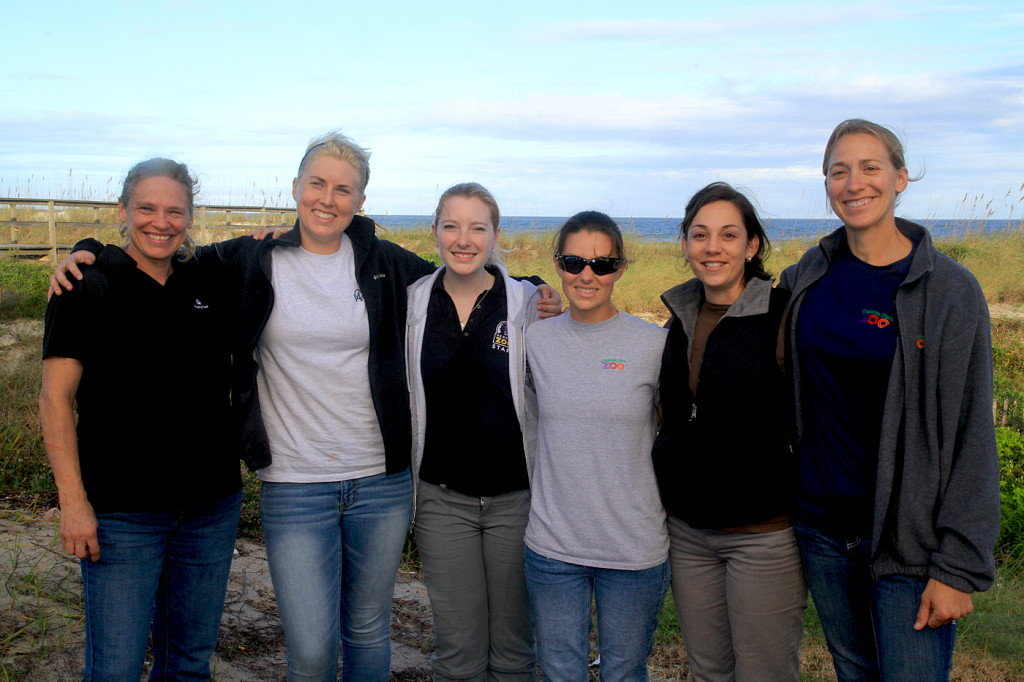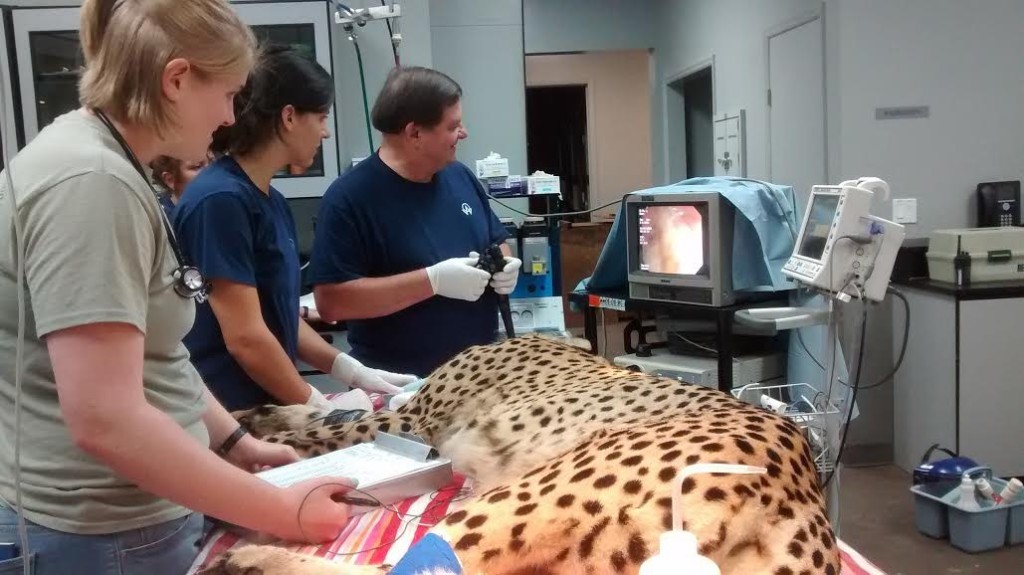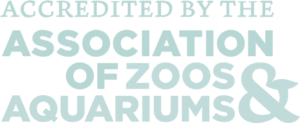White Oak Hosts a Workshop for Carnivore Keepers
White Oak promotes endeavors in conservation through innovative science, education, training and collaboration. Recently, we hosted a cheetah and maned wolf husbandry and management workshop involving both Dickerson Park Zoo and Denver Zoo carnivore keepers. Here is a short blog by Animal Care Specialist Sophia Tribuzio about the workshop.
We shared the successful techniques we use to manage and breed both cheetah and maned wolves. The keepers were given the opportunity to have a very hands-on training experience aiding in moves, blood draws, and even an annual exam (below).
Many of our techniques enable us to accomplish training goals without investing massive amounts of time. For example, the design of the maned wolf enclosure allows for minimal training but optimal management. There is a small alleyway or chute with a small guillotine style door on the end. On the other side of the door is a squeeze crate. Maned wolves are known for their shy demeanor, so when they are walked into this area, they are looking for a small dark place to hide leading them into the squeeze crate (below). Once in the crate, the wolf can be weighed, hand injected for vaccination or immobilization and/or moved to another enclosure or facility. This has minimal stress on the animal and can be quickly done at any time without prior training. (If only this could be done with a cheetah!) White Oak emphasizes the importance of natural behavior and applies it to everything from enclosure design to management style.

When it comes to cheetah, we rely heavily on the individual cheetah personality and willingness to accomplish a trained behavior (above). There were some procedures we demonstrated during the workshop that we had never tried with an individual, this allowed us to discuss and plan a keeper and animal training protocol during the workshop.
Some of these ‘White Oak secrets’ took years to establish but we need to work together to save species, which means sharing secrets. White Oak invites people from around the world to train with us, learn from us and help up protect wildlife and wild places. Our work is too important to do alone.
Sophia Tribuzio, Animal Care Specialist


